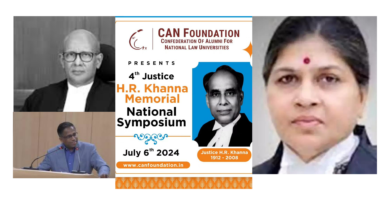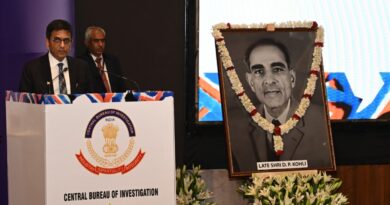Advocate’s Plea in Kerala High Court: Challenges Posed by Hindi Naming of New Criminal Laws for Non-Hindi Speakers
(Judicial Quest News Network)
28, May 2024, An Advocate P. V. Jeevesh has filed a public interest litigation in Kerala High Court, contesting the decision of the Union of India to assign titles in Hindi to three new Criminal Acts: Bharatiya Naya Suraksha Sanhita, Bharatiya Nyaya Sanhita, and Bharatiya Sakshya Adhiniyam.
The division bench, led by Chief Justice A.J. Desai and Justice V.G. Arun, is scheduled to hear the petition on May 29, 2024, which falls on a Wednesday.
The plea requests the court to declare the respondent’s actions of assigning Hindi/Sanskrit names to the Acts as ultra vires, to instruct the respondent to provide English nomenclature for the three Acts, and to affirm that Parliament is not authorized to name Acts in any language other than English.
The petitioner, a seasoned legal practitioner, advocates on behalf of a diverse legal fraternity comprising lawyers, judicial officers, law officers, educators, and more, many of whom are not well-versed in Hindi and Sanskrit languages. It is noteworthy that a significant majority of members within the legal community in the southern regions of the country are unfamiliar with these languages. Consequently, the imposition of Hindi and Sanskrit titles engenders perplexity, ambiguity, and challenges for non-speakers of these languages, particularly those hailing from the southern state.
It is additionally argued that one of the intentions behind Article 348 was to foster the widespread adoption and recognition of the English language among diverse linguistic communities throughout the nation. This initiative aimed to transcend barriers and foster unity and mutual understanding among the multifaceted groups within the country. The petitioner characterizes the respondent’s actions as ‘Linguistic imperialism’, asserting that prioritizing the dominance of any single language can potentially exacerbate language-based tensions and undermine the cohesive fabric of the nation.
Furthermore, the petitioner contends that Hindi is spoken by 41% of the total population of India, yet the majority of members within the legal fraternity in the southern part of the country are not conversant with it.
It violates the fundamental right to occupation given under Article 19 (1)(g) of the Act.




